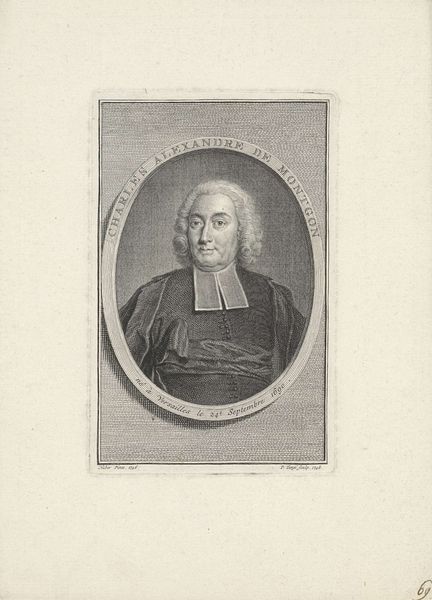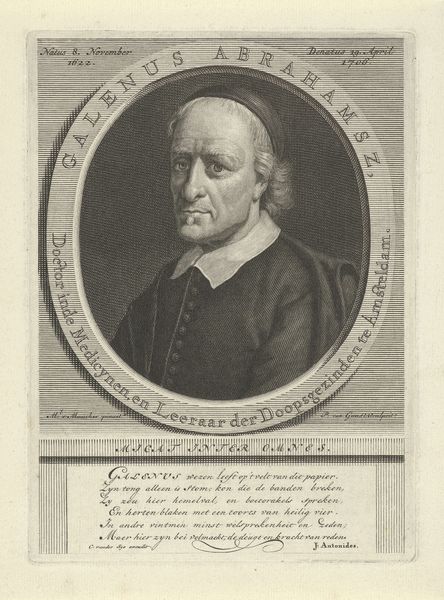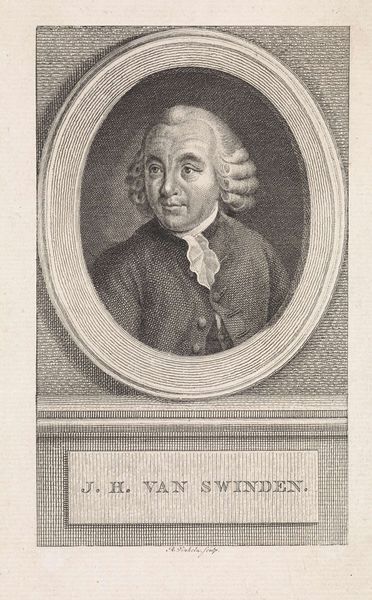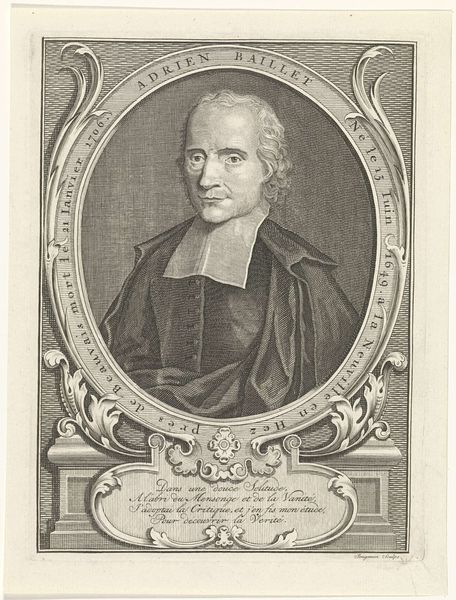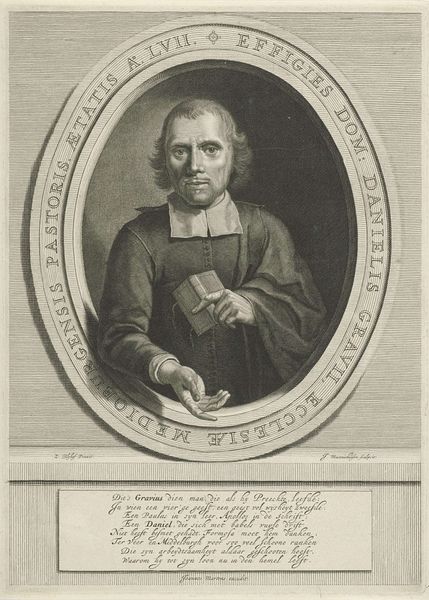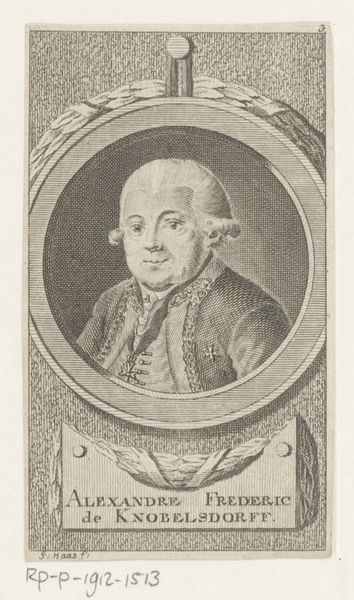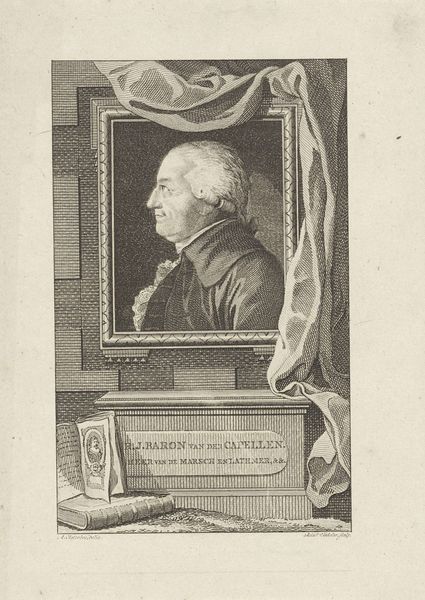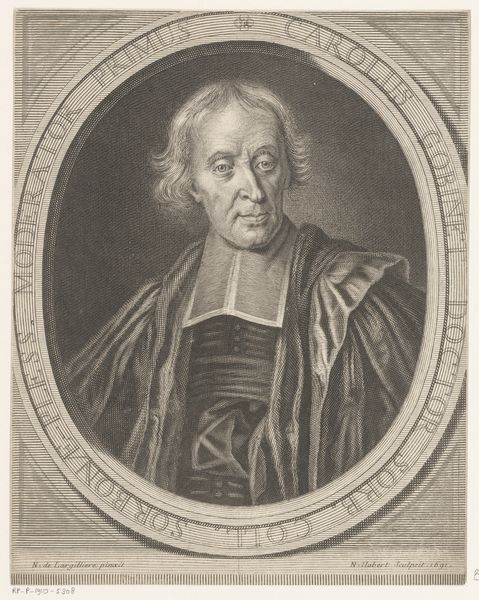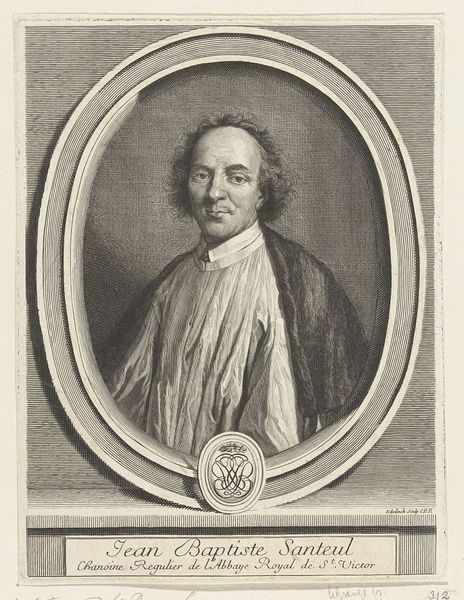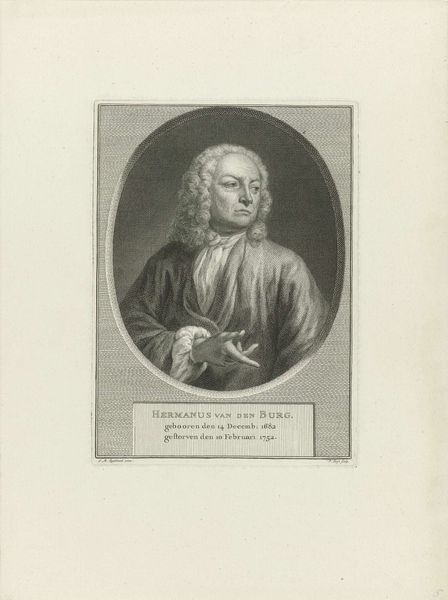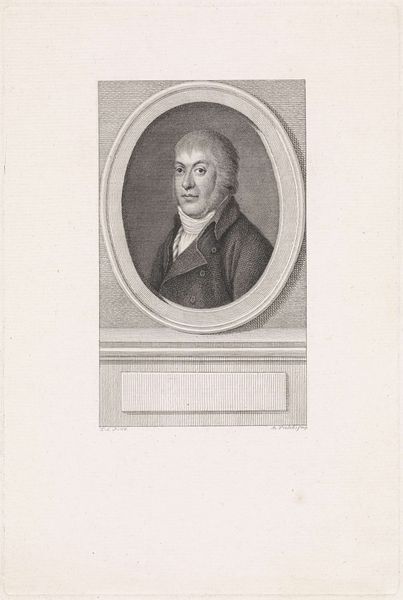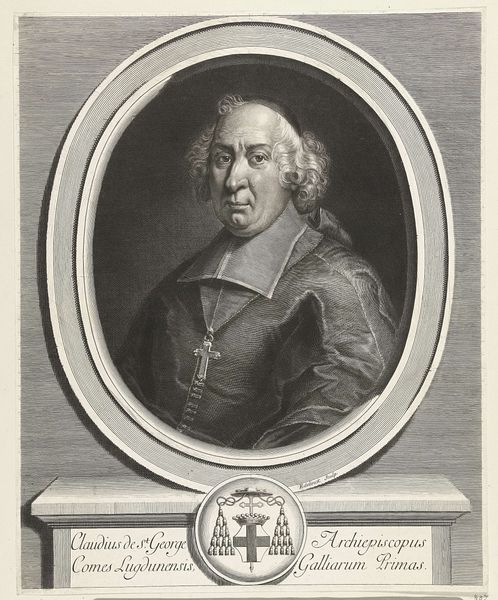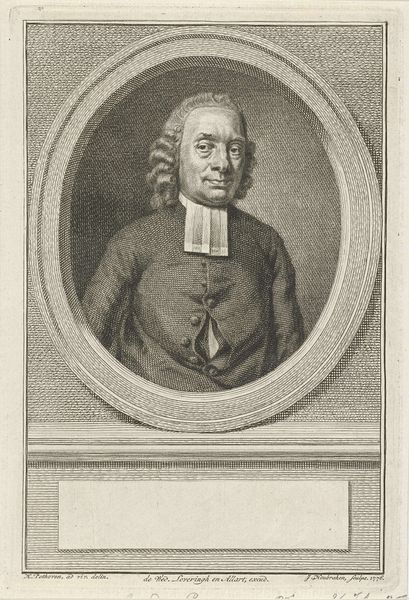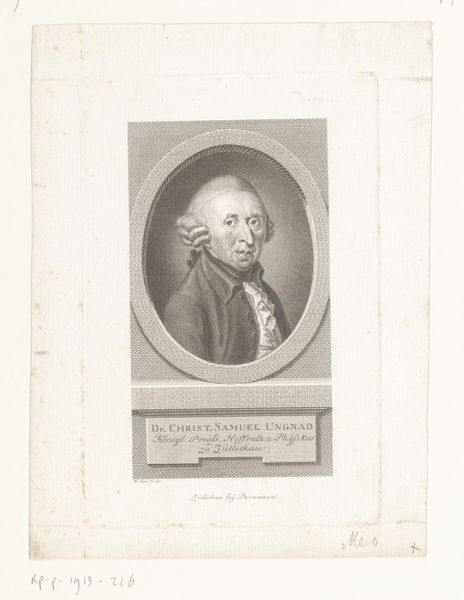
print, graphite, engraving
#
portrait
#
baroque
# print
#
graphite
#
graphite
#
engraving
Dimensions: height 375 mm, width 292 mm
Copyright: Rijks Museum: Open Domain
Curator: Looking at this engraving, "Portret van Nicolas Feuillet," etched between 1666 and 1707, there's a clear attempt to capture the essence of a cleric, the textures expertly rendered through graphite. Editor: It strikes me immediately as being very self-possessed, almost imposing. The figure gazes out with a slight frown, enveloped by rich layers of symbolism both visible and implied. Curator: Absolutely. Notice the baroque framing device—the oval cartouche embedded with text, resting upon a carved plinth. It elevates Feuillet, framing him within societal expectations and religious narratives of the era. As a print, we can understand its existence and proliferation as a signal to baroque social networks. Editor: And that gaze draws one to the face, but it's the symbolic weight of the scroll he holds which grounds him within a clerical tradition of text and scripture. Its contents must be carefully studied, in the same way that the layers of the clerical garb both mark and constrain his figure. Curator: It is precisely this relationship between individuality and constraint, performance and social expectation, that I find so fascinating. Feuillet's confident expression, his posture, communicate power. But there’s tension. Who was he outside these representations, and who had the privilege to even see beyond? Editor: Agreed. And yet, the print operates as more than merely documentation. This engraving transcends likeness to function as an echo of ideals and the values assigned to religious men during that epoch. The details become representative. Curator: In some ways the portrait almost becomes less about Nicolas Feuillet himself, and more a comment on power and legacy, doesn't it? Editor: Precisely, so. The work embodies the interplay between individuality and its public perception. Thank you for enriching my reading. Curator: Thank you for elucidating its subtle complexities with symbolic reading.
Comments
No comments
Be the first to comment and join the conversation on the ultimate creative platform.
